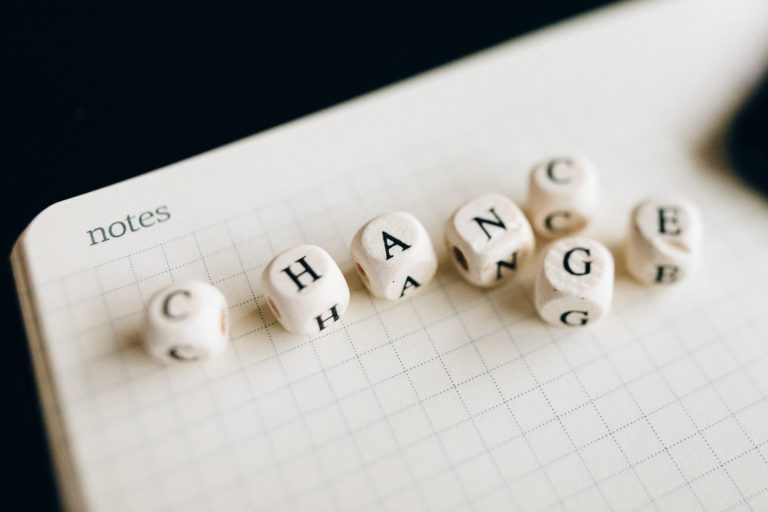The question of “what can be done to prevent people developing eating disorders?” was thrown into the mix of questions asked following speaking at an eating disorder training day a few weeks ago.
The attendees were dietitians working in all areas of eating disorder treatment including with inpatients in hospital and private practice in the community.
It’s a great question.
“How do we prevent eating disorders?”
I love this question possibly even more than the “how do we treat people with eating disorders?” questions because it doesn’t get enough attention.
I remember doing a public health subject at university and learning about “upstream” vs “downstream” healthcare.
Downstream being how we treat the health issue that has already gone “wrong” and upstream being how we prevent this health issue from happening in the first place.
It is the upstream that I would love to see more energy and funds poured into for eating disorders but also for many health issues because unfortunately our current model of healthcare is largely focused on downstream treatment for eating disorders and many other health conditions.
It is the upstream that makes more sense.
In the long run we save money and resources by preventing illness vs treating but most importantly we allow people to live happier and healthier lives and that is something that at the individual level you cannot put a price on.
Hence, I get excited when I hear others are thinking in this way.

The Individual Level You Cannot Put a Price On
My appreciation for this question is also likely due to my own personal experience living with anorexia nervosa.
Having lived 15 years of my life with anorexia nervosa I wish with all my heart that I had never fallen sick in the first place.
When I share this, it often comes as a surprise to people because having lived with anorexia is something I talk about so candidly now.
I am so far removed from that life that it’s almost if not impossible to remember quite how it felt.
Yes, I understand and even hold gratitude for the profound lessons and learnings that experience taught me.
Yes, I believe that having lived 15 years of my life with anorexia nervosa undeniably played a monumental part in shaping who I am today.
A person I am proud to be.
Overall, I’ve made peace with that being part of my story.
However, I do not believe for a moment that that struggle and suffering were necessary to my becoming a great version of myself.
That’s why I am interested in prevention.
I am speaking from the lived experience of someone whose life – both the life that I lived with anorexia nervosa and that I could potentially and very feasibly lived without anorexia – you cannot put a price on.
I believe no one, including the younger Bonnie, should ever have to suffer and struggle through the hell of an eating disorder.
So, How Do We Prevent Eating Disorders?

To address this question, it is important to understand some fundamentals about eating disorders.
Eating disorders, like any mental health issue including depression to addiction, do not exist in isolation.
Eating disorders are not a weakness or failing at the level of the individual.
They are a societal issue.
They are a failing at the level of society.
It took me until I was recovered to fully understand and appreciate the truth of this.
During the years I was sick I wholeheartedly believed I was the problem.
I believed that I just needed to try harder.
Even as I write this, I know there are others out there suffering and believing what I believed.
That they are the problem.
It’s not true.
It’s not your fault.
It never was.
This is why the question of what to do to prevent eating disorders isn’t such a tricky question to answer but it is a tricky question to solve because the answer is we will not prevent eating disorders by focusing on the individual.
We will prevent eating disorders by healing society.
We will prevent eating disorders when we make the world a safe place to exist.
I am aware that this is a big statement but anyone who has ever lived with an eating disorder or witnessed a loved one living with an eating disorder will easily tell you it’s true.
An eating disorder is a symptom of what’s really going on.
I am not saying it’s within your capacity to change the world.
I know knowing that that is what needs to happen to make eating disorders obsolete isn’t even going to help you on your personal path to freedom if you are already living with an eating disorder because it’s within the realms of possibility that we may never reach a fully healed society.
We may never reach a fully healed, kind and functioning world so the unfair truth of this means even though it is not your fault you developed an eating disorder, even though it is not your fault you are living with an eating disorder it is you and only you who has to do the hard work to recover.
The harsh truth is that as long as our world remains the way it is people will continue to develop eating disorders. On top of that the more uncertain and fearful the world becomes the more people will develop eating disorders.
However, it’s not all doom and gloom because even if the world remains a hard (and also wonderful) place to live there are things you can do to personally make the world a better place and help prevent people developing eating disorders.
Here are my top 3 encouragements…
- Sort Your Own Sh*t Out

This is the one that I bring up the most but I do so with reason and intention.
The reason being it’s crucial.
The intention being that someone takes it on board and unknowingly prevents an unknowable number of people falling sick and dying of eating disorders.
You simply cannot know the impact you will have by liberating and developing yourself.
Think of anyone in your life who you’ve ever been impressed by, awed by, respected, learned something meaningful from? Is it because they told you some information or is it more because of who they were?
If you are the mum telling your child it’s ok to eat pizza, that every body is beautiful and that they should be kind to themselves and then you are not eating the pizza/shaming yourself for eating the pizza, speaking unkindly about your body or yourself what do you think is going to get through?
Hint: it’s not your words and it’s not your advice.
Actions speak louder than words, everyone has heard this. Everyone knows this.
No matter how well intentioned your advice is worth nothing here.
Your actions are everything.
And what is it that determines our actions?
It is out thoughts, our feelings and our beliefs about ourselves and the world.
Hence when you address your beliefs (you might not even be aware you have and this is where I would suggest, no highly encourage you, to work with a clinical hypnotherapist) your actions change.
Naturally.
You become that person (and therefore spontaneously do those behaviours) rather than trying to do a behaviour.
Sorting out your own issues is also the thing that each of us has the most control over so it’s not only one of the most impactful especially to the people closest to you who you love and care about the most not to mention the way sorting out your own issues it improves the quality of your own life but it’s also the most doable.
The most impactful and the most doable.
It is the place to start.
2. Help Them Develop the Skills and Resources they Need to Succeed

Just like you can’t recover from an eating disorder by ignoring or avoiding reality, your chances of falling sick with an eating disorder greatly diminish if not become non-existent when you are able to meet reality with the skills and resources that are required in any given moment.
Therefore, if you really want to help prevent eating disorders part of the puzzle is contributing to making the world a better place to live and part of the puzzle is empowering others to be ok in spite of the world being a hard place to live (a wonderful place to live but also undeniably hard).
I can look back now and postulate on the reasons I fell sick with anorexia nervosa (and I’ve written more than one blog on this including “In High School I Got Straight A’s and Anorexia: The Link Between Perfectionism and Anorexia” and “Why I Starved Myself: Why I Starved Myself: The (Entirely Unsexy) Truth About Anorexia Nervosa” so I won’t elaborate too much on that here) and one of the blaringly obvious reasons to me in hindsight is that I didn’t have the skills to cope in a world that seemed impossibly hard.
In recovery there was times where “treatment” was just about distractions and minimizing stress but the truth that I knew then and I know even more deeply now is that I didn’t need for all the stresses to be taken away.
I knew then and I new now that they were all still there waiting for me any time I considered recovery (plus some the more time went buy and the more I harmed my body, mind and soul).
What I needed was help to be able to cope with the stresses I faced in life and would face in the coming years.
I needed help to be able to cope with the world being a confusing and hard place.
I needed to know it was possible to cope and survive through all the hard things, not deny it.
I needed to develop the skills and resources within myself that would allow me to adequately cope and survive through all the hard things not feel I had to deny them.
I’ll give you some examples from the work I did with my clinical hypnotherapist while I was going through recovery to help you understand some tangible examples of what I mean when I talk about “skills” and “resources” to cope.
The types of things I had to learn that helped me function better in the world included (but were not limited to) developing boundaries and how to let go of people pleasing and perfectionism.
These are all things we know are good and we know we “should” do but most of us don’t know how to do them and if we do them we don’t know how we do them. Therefore, from a purely conscious mind experience they are very hard, if not impossible to develop. This is one of my biggest reasons why I advocate for working unconsciously (aka utilising the tool of hypnotherapy or NLP).
When we work with our unconscious and bring our unconscious world to light we are able to tweak and adjust what was put there by default to be more in alignment with what we want.
Ultimately, we are more easily able to change.
This point of helping others develop the skills and resources they need to succeed ties heavily into the first point on sorting out your own s*it because those around you are going to be more impacted by what you do and what you believe far beyond than anything you could tell them.
So, this point is help them develop the skills and resources they need to succeed by 1. Sorting your own s*it out and “Being the example” and 2. Help them access professional help who can help them access their unconscious mind to sort their own s*it out directly.
3. Help Them Become Autonomous

Lack of self-trust and self-identity are keystones of what it means to live with an eating disorder.
Therefore, if we help people develop a strong sense of self in such a way that they can be willing to look at new information and viewpoints while running them past their own internal compass and values to trust that they can take on or discard new ideas and ways of doing things as they choose we’d massively reduce the number of people developing eating disorders.
That is a fact.
The question is “how do we do this?”
How do we help someone develop their own sense of self, self-esteem and empowerment?
Once again, this point ties into the initial point of working on your own s*it in that if you are a people pleaser or a perfectionist and this is what you model it is far more likely this is what your child will learn is the norm and unconsciously do themselves.
Which means your first and foremost task is 1. Sorting your own s*it out and after/during this I would be also helping them to 2. Access professional help who work in empowerment and generative treatment and not just treating. Because these are different things.
We know all too frequently people living with eating disorders are told it is something they will have to manage for the rest of their lives.
It is an all too familiar story that people wanting to recover from eating disorders are told they will never recover and that they will be forever in treatment or having to manage their condition (I was one of these people) which is the opposite of generative and empowering.
The type of treatment matters. Help them find treatment that or on the prevention side of things 1. be the example 2. if you see them struggling with their identity and place in the world help them access empowering help.
Summary

In summary the most impactful things you can do to prevent people developing eating disorders are:
- Sort your own s*it out.
I will never stop stressing this point.
It is the single most important thing you can do to 1. Prevent others developing eating disorders and 2. Inspire people to recover from eating disorders and 3. Also just get to live a far more wonderful life yourself.
By doing your own work you become the person who naturally empowers others to develop their skills and resources to succeed in the world and become their own person.
We’ve all heard it “actions speak louder than words” and it’s true.
- Help them access professionals who can help them develop the skills and resources they need to succeed.
We need to meet the world as it is and also have the ability to meet unknown situations in our future in order to succeed.
Developing our internal skills and resources is crucial to this. Ideally this should happen through the process of life but to be honest life is hard and things come at us from all angles and there are many reasons we may not quite develop optimal ways of being in the world. Which is actually ok because when we recognise this in ourselves or others we can see struggling there is help out there that can help.
How we are today does not need to be how we are forever.
- Help them access professionals who can empower them.
With a strong sense of self and place in the world and the skills and the resources to meet day to day life as it is (vs how we’d like it to be) our chances of developing an eating disorder go down massively.
Final Thoughts

What I am hopeful stands out from the words I’ve shared above is that we won’t prevent people developing eating disorders through educating them on what to eat and not eat anymore than we will help people recover from eating disorders through nutrition education alone.
I want it to be abundantly clear in all I share about eating disorders that food is not the problem.
The first suggestion I’ve made within this post is your role.
To sort our own shit out is 100% each and every one of our roles. To advance ourselves as much as possible so we aren’t unintentionally perpetuating diet culture, poor emotional regulation and so on.
The second two points are more about enlisting the help of professionals who can help where you can see someone may be struggling or lacking.
Combine these 3 points with steering the outside world ever more in the direction of being a happier, healthier and safer place and I believe we’d prevent a monumental number of people from ever developing eating disorders (and other mental health disorders and addictions).
With my whole heart I hope you found this information useful and inspiring.

Become Great. Live Great.
Bonnie.

